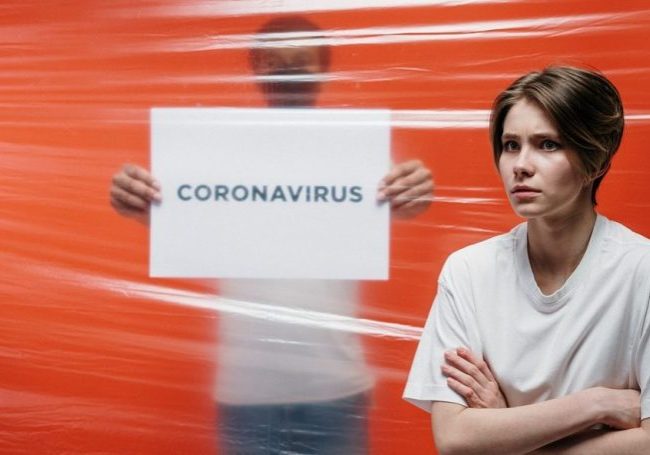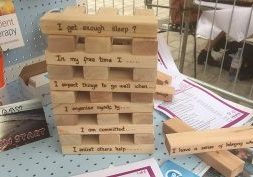Mental health, anxiety and resilience during Covid-19
By Louise
Given the impact that the Covid-19 pandemic might have on our emotional wellbeing, some are now worrying that the UK (and indeed other places besides) will go on to experience a ‘mental health pandemic’ (Guardian, March 2020). This, so it goes, would mean increased need to get treatment from traditional and already overstretched mental health services (Children’s Commissioner, 2020).
So, another call for more of the same traditional services? Distress is so often seen to be an individual mental health problem to be treated by trained experts. This traditional view is problematic because it ignores the social inequalities that can lead to mental health problems and so is becoming increasingly challenged (see Recovery In The Bin and Mad in the UK ). At the Centre of Resilience for Social Justice (CRSJ), Boingboing and the Resilience Revolution we believe community-based approaches to mental health that tackle inequalities and empower individuals and communities are invaluable, sometimes instead of, sometimes alongside, more formal approaches to mental health. Angie co-wrote a book about this called ‘Building a New Community Psychology of Mental Health’ (Walker, Hart and Hanna, 2017) which makes for pretty easy reading.
Lots of commentators have pointed out that Covid-19 has amplified pre-existing disadvantages in our society including those experienced by people with existing mental health difficulties including anxiety. In this blog Louise talks about resilience and Covid-19 through the lens of a survivor of severe and enduring mental health difficulties. Louise understands her mental health problems to be a direct result of childhood trauma and social inequalities, and she is an avid supporter of community-based approaches and the ideas of Resilient Therapy. Louise talks about how the Noble Truths, the set of values that underpin Resilient Therapy, have helped her throughout the challenges of Covid-19. The Noble Truths – Accepting, Conserving, Commitment and Enlisting – are particularly important when facing a crisis, as Louise explains:
Accepting
Given that I have an official diagnosis of an anxiety disorder, how I manage and how I think about things may be different to others. The everyday anxiety I experience is, according to the medical model of the DSM (Diagnostic and Statistical Manual of Mental Disorders), labelled as a ‘disorder’ and my anxiety is often perceived by professionals as contributing to poor decision making. Today, I function quite well – I work, I have a social life, I have friends. However, the anxiety I have experienced since a child is still as prevalent today, I simply accept my position and have learnt to manage it.
Remove the ‘anxiety disorder’ label for a moment, and I think I currently have a very normal reaction to a very abnormal situation, as I SHOULD be anxious, worried and scared during this Covid-19 pandemic. I am afraid of making others unwell, I am deeply concerned for the people I love, and I am worried about earning a living.
The recent anxiety I have had is based upon very real experiences and is there to serve a purpose. I am seeing this in many people – those I work with, friends and family, and in the general population. What distinguishes us all is how we recognise what we are experiencing, how we name it, and how we manage it. I name my anxiety during Covid-19 as I would at any other really challenging time, in fact, as survival rather than a disorder; to be accepted rather than treated.
I accept that it is ok to just ‘be’. It is ok to just sit here for a while, doing nothing. The anxious feelings I have are normal. There is something very powerful about acknowledging the moment, and something liberating about acceptance. It is also ok that sometimes our ‘all’ is functioning at 20% of its usual. In those moments, that is our all, and that is more than acceptable.
I spoke to someone the other day who has a range of quite serious health conditions, and anxiety was emitting from her every pore. I felt so much for her, but I also had to accept that what she was experiencing was normal, helpful and, in the current climate, possibly lifesaving. She will not go out until the restrictions are lifted, nor will she see her family. We are all together in being alone. I speak to people who are not listening to government advice. Anxiety is not present in these individuals, and that is concerning.
Conserving
There was a time when my life was very different to what it is today. I was reclusive and led what was described as a ‘chaotic lifestyle’. Now I am in a stable marriage, I work, and I have somewhat of a social life. I have a routine, purpose and have developed strategies to manage my mental health.
Throughout years of therapy, I learnt that distracting myself can ease my distress and I have previously thrown myself into work. When I am busy working, I do not have the time or space to feel my distress, and my career and progressing in my work has been my main goal for a number of years. Lockdown means that I cannot go into work, and this has left me feeling vulnerable and scared that with too much time and little purpose to my days, everything I have worked so hard to overcome has been forced back upon me. I was scared that all my distress, which I had learnt to box up and put away, would return with force. During lockdown I have had to find alternative goals. To stay resilient, I need to conserve and adapt the strategies I have spent years developing. For me, conserving has meant holding onto anything good and building on it.
When I get a burst of energy, I need to use it. If I don’t have any energy, I acknowledge that motivation is not going to come knocking on my door and I have to find and conserve it. Motivation is an interesting concept as we seem to sit around, waiting for it to find us. We want motivation to be this all-consuming, brilliant, non-stop plethora of energy and ideas. Sometimes, motivation is simply making a list of three tasks to do that day. Those tasks could range from opening the curtains, to mowing the lawn, and everything in between.
Commitment
This Noble Truth is about staying in there, being realistic about what is achievable and not giving up. People have told me all my life (well, since the age of 14) that I am a survivor. Being a survivor requires a long-term commitment, from myself and others around me. It is a long journey with many difficulties along the way, and when the difficulties feel immense, my level of commitment can be challenged. There have been many times in the past that I felt like giving up. My commitment has certainly been challenged during the Covid-19 pandemic.
My wife became gravely unwell with Covid-19. I believe that the anxiety I experienced at the beginning of my wife’s illness most likely contributed to her being alive today. Had I not continuously monitored her health, made the phone calls to different health professionals, and eventually called an ambulance, she may not be here. I committed to ensuring she received the care she needed when she needed it, and I did not give up (even when health professionals initially suggested her symptoms were mental health related, rather than Covid-19). The anxiety I experienced during this time was immense, and my fear was real, rather than being part of my anxiety disorder or ‘in my head’. My wife was fortunate and after 4 weeks in hospital is now making a good, but slow, recovery at home. I will also recover from this ordeal, and will do this with time, patience, a commitment to be kind to myself and an understanding that the immense distress I experienced is not a mental health disorder.
Enlisting
This Noble Truth is a challenge for me as it requires me to acknowledge my need for support, and to reach out to enlist support. For most of my life (until recently) I have been a voluntary or involuntary recipient of services. I have been assessed, diagnosed, judged, treated, medicated, reviewed, detained, discharged, readmitted, reassessed, etc. Consequently, I find it difficult to enlist support and I do not often seek help. What if I am rejected? Not believed? Judged? Have my liberties removed? Not worthy?
When my wife became increasingly unwell, I had to start calling upon health professionals for advice and guidance – this was extremely anxiety provoking, based upon a childhood that had me believe I was not important, exacerbated by negative experiences with health professionals as an adult.
Asking for help is a huge stress for me; it does not resonate with my identity as a survivor, as how can I be a survivor yet still need to enlist support? With my wife in hospital, and as I was self-isolating, I had to quickly learn to enlist support from the community to help with errands and shopping. This community support was different from previous mental health support I have received, it wasn’t expert-led and it didn’t make me feel inadequate or ashamed. It was provided willingly without any judgement, assessment or expectations, and there was no ‘expert’ telling me what I should be doing, or asking deep and personal questions to see if I was really worthy of their help. The help was simply offered out of kindness and I was immensely thankful; I felt like I belonged to a community. I learnt that enlisting non-hierarchical, community-based support is part of being a survivor and now when people extend a hand of friendship, I take it.
Let’s not rush into a ‘mental health’ pandemic
The message I would like to say is that we SHOULD be anxious. That does not mean we are suddenly a nation of anxiety disorders needing professional mental health intervention. We are a nation trying to survive and build resilience, and that is precisely what we should be doing. As the next part comes, we will face that also. For now, welcome the unease and listen to it as it could save your life. Accept your anxiety, Conserve your goals and Commit to your community relationships now more than ever, whilst Enlisting the help you need along the way. Bear in mind the experiences discussed in this blog, even if you are very, very anxious at the moment. They might help you feel confident enough to call your ‘expert’ friend in the first instance, if you are having a major wobble, rather than feel that you will definitely need a professional mental health ‘expert’.

